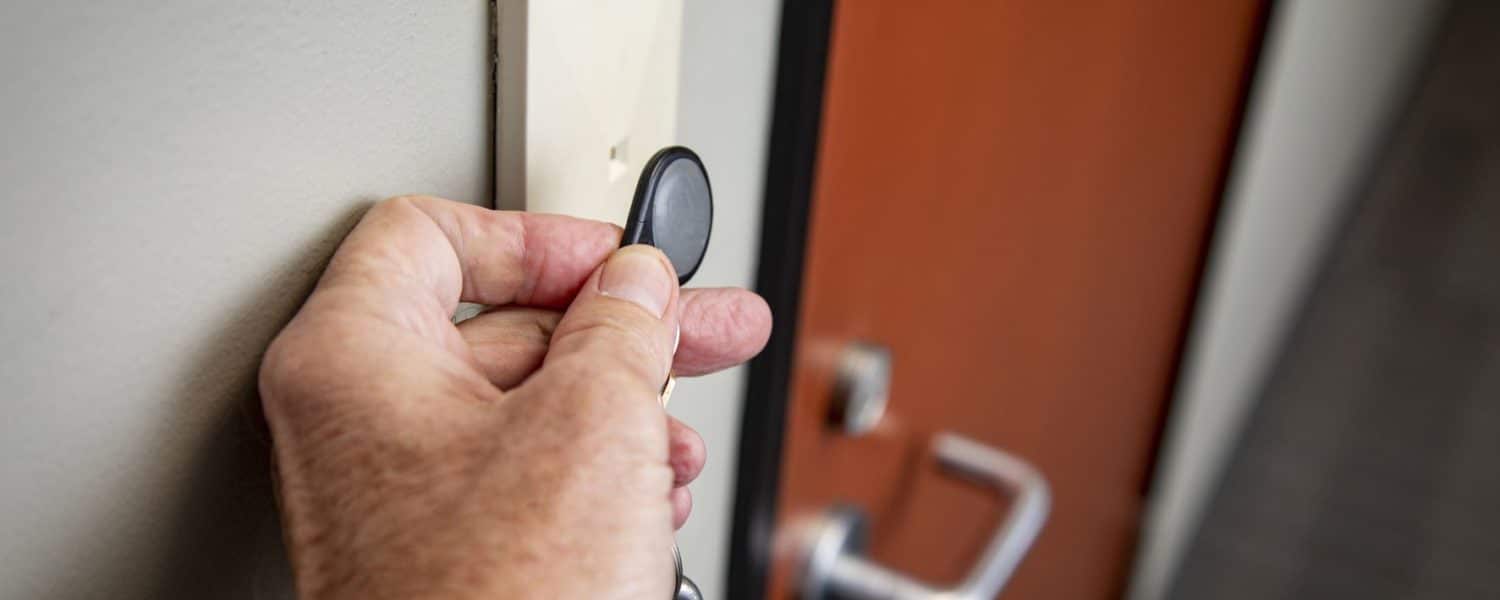By Terry Berringer
There are many ways of securing an entryway, and the first thing you must realize is that to secure an entrance, there has to be some type of vetting being done. This is done by person or by electronic device. The best way to prevent having someone enter an area would be to have an individual posted at every door 24 hours a day, 7 days a week. That’s just not realistic.
The next best is to have keys that you hand out to only certain personnel. We all know what happens there. Keys get lost, keys get given to other people, keys remain with people that have left or have been encouraged to leave. And, any way you slice it, keys end up in the hands of those that should not have them.
This leads to the best possible answer of electronic access control.
Electronic access control is a done by using a keypad, key card, key fob, or even your phone as a virtual key. All the aforementioned devices can be turned on or turned off from service (access) with the click of the mouse. There are even newer systems that automatically open the doors as soon as the authorized person comes within several feet of the door. All these systems give access to those that are permitted to enter while keeping those that are not authorized from entering.
Electronic access control systems are relatively easy to use. There is some programming work to do at set up, as well as maintenance with data entry for updating who does and does not have access. But, for the most part, once established, they system runs smoothly with very little maintenance required.
Always deal directly with a reputable company that has experience with access control systems. Even then, there are a few things to think about to help establish what system would be best for you.
Here are some things to consider when contacting an access control company:
- The system set up and installation is a significant cost.
- How many people need access through the area? If the area is the main entrance, and there is public access, then electronic access control would easily be overrun.
- Is the area around the door predominantly large glass windows? The shooter at Newtown did not have to open the door to have access into the building, he simply shot out the large glass panels around the door to enter the school.
- Does the access control need to be connected to fire alarm system? Is there a reason that during an emergency that the access system would need to be overridden?
- Battery backups may be needed to circumvent issues with power outages.
Many access control systems work off a concept of magnetic switches that lock and unlock the doors. Be wary of lock and door hardware that would be easily manipulated by a good strong arm to break the hold of a locking mechanism.
All this just to say that access control systems are very convenient and easy to use. They are dependable when put in by a qualified installer. The locks are only as good as the doors and hardware.
Many new access control systems have a monitoring ability that can send alerts if not properly functioning of tampered with. If you are currently using keys, cards, or fobs, go around your property daily and check all doors to make sure they are closing and latching properly. The best systems in the world can be circumvented by a rock holding the door open or a latch that hits the strike plate to hard and bounces back open.
Keeping those that are inside safe from those outside—whether it be a school, worship facility, or business—is paramount in these troubling times. Access control helps this concept but is only as good as the material used and the people using it. Continued training is recommended for those that are using this equipment with continued updates with policies and procedures to keep everyone safe.
Terry Berringer is the owner operator of Church Emergency Consulting in Pittsburgh, www.churchemergency.com.





